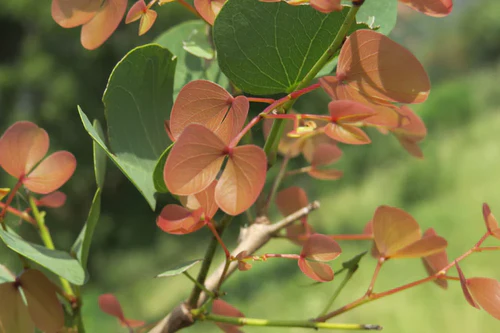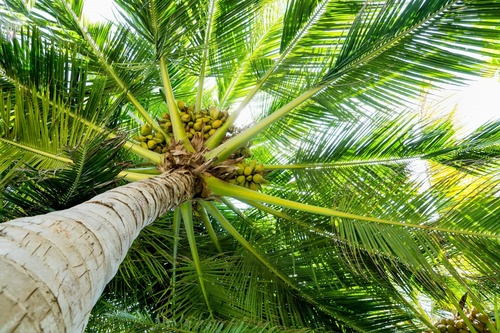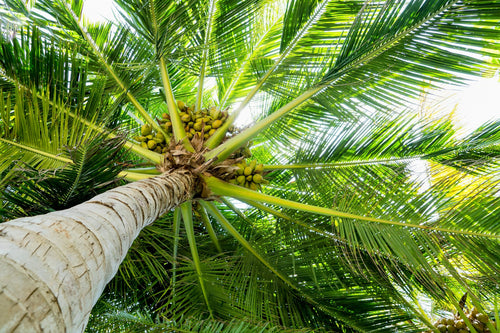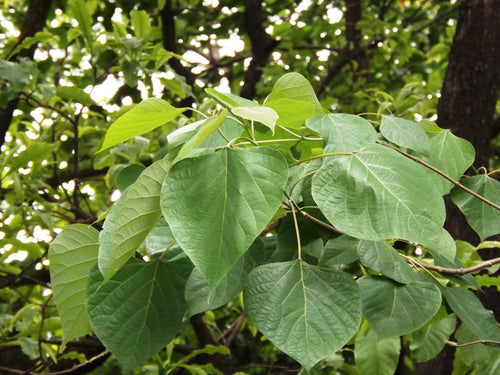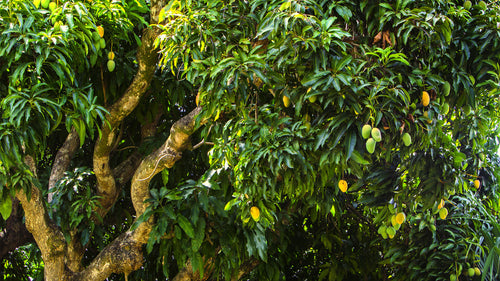Planting Today for a Greener Tomorrow: IAC Group’s Agroforest Initiative for a Sustainable
IAC Group, a global leader in creating inspiring automotive components, strengthens its commitment to sustainability through a tree plantation initiat Read more
Plantation Site Gallery
Project Update 3

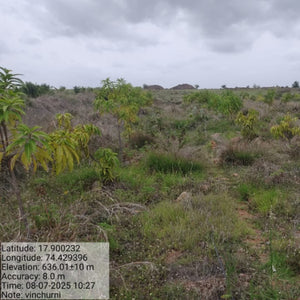



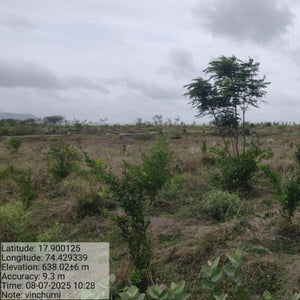
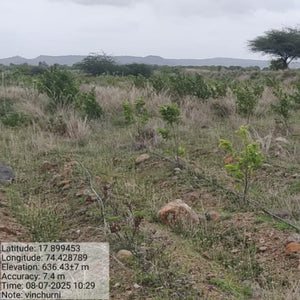
Project Update 2

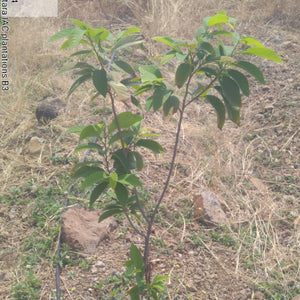
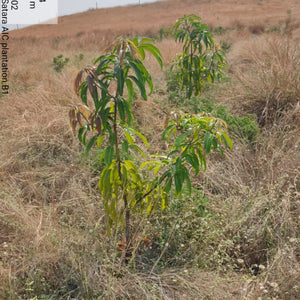
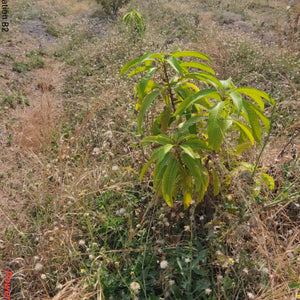
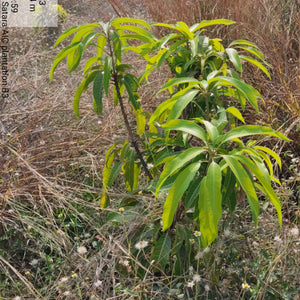
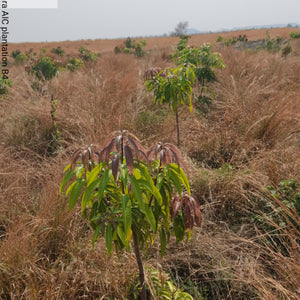
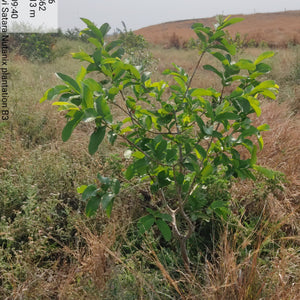
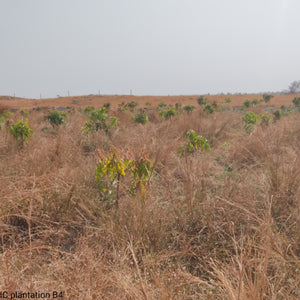
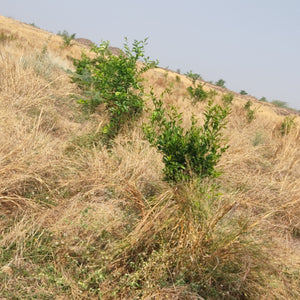
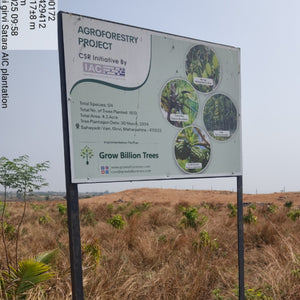
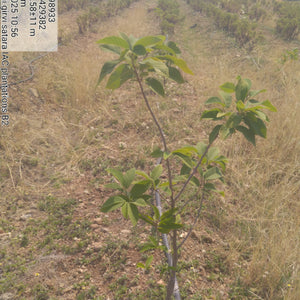
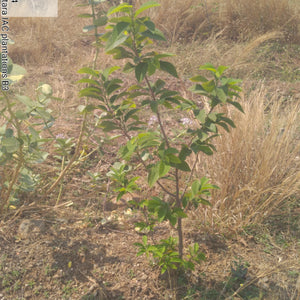
Project Update 1



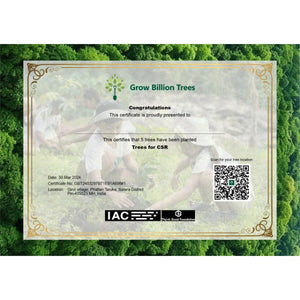
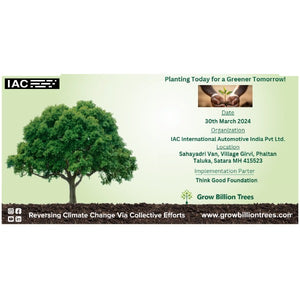

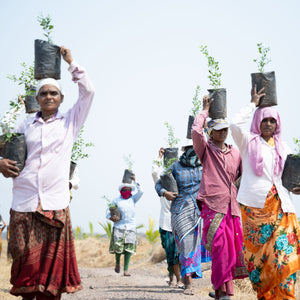
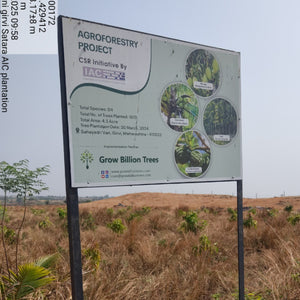







Digital Forest
Forest with 1,610 Trees planned
Want to plant your tree now?
Plant a Tree @ 299Planting Today for a Greener Tomorrow: IAC Group’s Agroforest Initiative for a Sustainable Future
IAC Group, a global leader in creating inspiring automotive components, strengthens its commitment to sustainability through a tree plantation initiative rooted in the agroforest concept. As part of its CSR efforts, this initiative aims to drive environmental conservation while supporting local communities. Planting today for a greener tomorrow.
Central to this initiative is a farmer-centric approach that emphasizes enhanced income diversification, improved livelihood resilience, and reduced farming costs. By integrating trees with crops, the agroforest model creates sustainable agricultural ecosystems that boost farmers' earnings and reduce dependency on single-income sources. This approach promotes biodiversity, improves soil health, and ensures a steady supply of resources for local communities. Additionally, it supports climate change mitigation through carbon sequestration and sustainable land use practices.
This initiative underscores IAC Group’s dedication to social and environmental responsibility. By fostering ecological balance and community well-being, IAC is driving meaningful change beyond the automotive sector, aligning with its mission to create inspiring environments for a greener, more sustainable future. Planting today for a greener tomorrow reflects IAC's long-term vision of positive environmental impact, nurturing both the earth and the communities that depend on it.
Project Planning & Execution
No. of trees: 1611
Plantation Location: Sahayadri Van, Girvi, Satara, Maharashtra 415523
Plantation Duration: 30th March 2024 to 3rd April 2024.
Name of Species: Mango, Coconut, Custard apple, Teak
Species Selection & Its Benefits:
The initiative emphasizes the selection of native and climate-resilient tree species to ensure long-term ecological balance and high survival rates. By aligning species choice with both environmental needs and local market demand, the project not only enhances biodiversity but also supports rural livelihoods through sustainable income generation. Active farmer participation and consent were central to the planning, ensuring the trees integrate smoothly with existing agricultural practices.
For this initiative, Mango (Mangifera indica), Coconut (Cocos nucifera), Custard Apple (Annona squamosa), and Teak (Tectona grandis) were strategically selected for their combined ecological, economic, and social value. Mango and Custard Apple offer strong market demand and nutritional benefits, while Coconut provides diverse uses and year-round income. Teak, known for its high-quality timber, contributes to long-term economic security and carbon sequestration.
Together, these species improve soil health, foster biodiversity, create microclimates and build resilience in farming communities. This thoughtful selection reflects IAC’s commitment to environmental stewardship, climate action, and empowering local farmers through sustainable agroforestry.
Beneficiaries Details
| SN | Farmer Name | Google Location | Village Name | Plot Size | Mango Planted | Custard Apple Planted | Coconut Planted | Teak Planted |
| 1 | Mr. Bintu Pawar | https://surl.li/gcedra | Girvi | 4.5 Acre | 492 | 565 | 40 | 514 |
Planting Methodology and Its Advantages
Agroforestry: IAC’s tree plantation initiative is based on the agroforestry concept, a sustainable land management approach that balances economic benefits for farmers with environmental conservation. By integrating trees into agricultural landscapes, this initiative helps farmers generate additional income through fruit production, reducing reliance on chemical inputs while diversifying revenue streams for greater financial stability. Agroforestry enhances soil fertility, improves water retention, and prevents erosion, ensuring long-term ecological balance.
This approach also supports biodiversity, natural pest control, and microclimate regulation, improving overall agricultural productivity by reducing wind impact, moderating temperatures, and providing shade. As part of its Corporate Social Responsibility efforts, IAC recognizes agroforestry as a powerful tool for carbon sequestration, environmental restoration, and sustainable land use. By planting trees, the initiative contributes to climate action, groundwater conservation, and the rehabilitation of degraded lands, ensuring lasting environmental benefits. This initiative reflects IAC’s commitment to sustainability and responsible corporate practices, reinforcing its vision for a greener and more sustainable future for generations to come.
Advantages of Agroforestry
-
Increased Farmer Incomes: This approach helps in increasing the farmer’s income by as much as 3 times. Farmers benefit from diversified income sources, lifting economic resilience.
-
Improved Livelihoods: Agroforestry enhances farmers' resilience to economic and climate-related shocks by creating more sustainable and diversified farming systems.
-
Biodiversity Promotion: Agroforestry supports a diverse range of plants and animals, creating habitats for wildlife and improving ecosystem health.
-
Environmental Sustainability: This model reduces carbon emissions and promotes sustainable land management, aligning with SDG 13 (Climate Action) and SDG 15 (Life on Land).
-
Food Security: Agroforestry enhances agricultural productivity and food availability by integrating fruit-bearing trees with crops, contributing to SDG 2 (Zero Hunger).
-
Carbon Sequestration: Trees planted through agroforestry absorb carbon dioxide, helping reduce greenhouse gas emissions.
-
Climate Resilience: Agroforestry helps mitigate climate change impacts by improving land productivity and fostering biodiversity.
- Improved Soil and Water Management: Trees enhance soil fertility, reduce erosion, and increase water retention, resulting in more resilient farming.
Activities During Tree Plantation
As part of its CSR initiatives, IAC International Automotive India Pvt. Ltd. conducted a tree plantation drive under the agroforestry concept, with all planting activities executed by skilled local farmers to ensure sustainable and impactful implementation. The initiative was designed to align with environmental conservation objectives while supporting rural development and ecological balance.
Before the plantation, the land was prepared by clearing unwanted vegetation, digging water-retentive pits, and enriching the soil with organic compost. The team also inspected the plantation site to evaluate soil quality, tree alignment, and the efficiency of the drip irrigation system for long-term water management.
On the plantation day, Ms. Nidhi Singh, Co-founder and CEO of Grow Billion Trees, Mr. Nandu Singh, Co-founder and CTO of Grow Billion Trees, Mr. Satender Kumar, Co-founder and CIO of Grow Billion Trees, Mr. Bintu Pawar, IAC employees, and local farmers actively participated in planting and watering saplings, reinforcing their collective commitment to environmental conservation. This initiative resulted in the plantation of 1,611 trees, significantly contributing to biodiversity, soil enrichment, and carbon sequestration.
Alongside the plantation activity, a knowledge-sharing session was conducted to raise awareness about sustainable agroforestry practices, followed by a certificate distribution ceremony to recognize participants' contributions.
The day concluded with a photo session, capturing the spirit of collaboration and commitment to a greener future. Through this collaborative effort, IAC continues to strengthen its role in creating a greener planet while supporting local farming communities and advancing sustainable agroforestry practices.
Conclusion Elements
Impact
Direct Impact
| Parameters | Values | References |
| No. of Trees Planted | 1,611 | |
| Green Cover (Acres) | 4.5 | |
| Fruit Production Potential (Tons/Year) | 24.6 | |
| Timber Production Potential ( Tons ) | 218.45 | |
| Income Generation Potential (Rs/Year) | ₹3,323,500 | |
| Carbon Sequestration Potential (KG) | 20 |
Small to medium-sized trees can sequester around 10–48 kilograms (22–106 pounds) of CO₂ annually. https://growbilliontrees.com/blogs/knowledge/how-much-co2-can-one-tree-absorb |
| Carbon Sequestration by 1611 mature trees ( Tons/year) | 32.2 Tons | No. of Trees x Carbon Sequestration by 1 mature trees per year |
| Carbon Credit Equivalent | 32.2 | One carbon credit is equivalent to one tonne of carbon dioxide or the equivalent amount of another greenhouse gas. |
| Carbon Footprint of an avg Indian Citizen (Tons/Year) | 1.8 | https://www.iea.org/countries/india/emissions |
| Offsets Annual Carbon Footprint of (Adults) | 18 | Carbon offset by 1611 mature trees per year / Carbon Footprint of an avg Indian Citizen per year |
(This impact analysis is forward-looking (An Agroforestry project matures in 3-5 years)
Indirect Impact
Community Impact
-
Empowerment of Farmers: By providing training and resources for sustainable farming practices, agroforestry equips farmers with skills to enhance productivity and adapt to environmental changes.
-
Food Security: The integration of fruit-bearing trees and crops ensures a consistent food supply, improving nutrition and reducing hunger within the community.
-
Environmental Awareness: Community involvement in tree plantation fosters a sense of responsibility for environmental conservation and promotes sustainable practices in daily life.
-
Enhanced Social Equity: Agroforestry initiatives foster enhanced social equity by empowering marginalized farmers with sustainable livelihoods, bridging economic gaps, and promoting inclusive community participation in environmental conservation efforts.
-
Resilience to Climate Change: The diverse and sustainable nature of agroforestry helps communities mitigate the impacts of climate change, including extreme weather events, by stabilizing local ecosystems.
-
Health and Well-being: Green spaces created through agroforestry improve air quality and offer a healthier environment, contributing to the physical and mental well-being of the community
Environmental Impact
-
Carbon Sequestration: Trees act as carbon sinks, absorbing significant amounts of CO2 from the atmosphere, helping to mitigate climate change and reduce greenhouse gas emissions.
-
Soil Health Improvement: Agroforestry enriches soil through organic matter from fallen leaves and roots, improving fertility, structure, and nutrient availability for crops.
-
Erosion Prevention: Tree roots stabilize the soil, reducing erosion caused by wind and water while protecting nearby agricultural fields and water bodies.
-
Biodiversity Conservation: By creating habitats for various species, agroforestry enhances biodiversity, supporting pollinators, beneficial insects, and native wildlife.
-
Water Cycle Regulation: Trees improve water retention, recharge groundwater levels, and reduce surface runoff, contributing to a more balanced and sustainable water cycle.
- Microclimate Regulation: Agroforestry moderates temperature extremes, reduces wind speeds, and increases humidity, creating favourable conditions for crop growth and ecosystem balance.
Achievements
SDG Goals Achieved through Agroforestry
SDG 1: No Poverty – IAC’s agroforestry plays a vital role in reducing poverty by generating sustainable income opportunities. By integrating trees into agricultural landscapes, this initiative contributes to economic resilience, ensuring long-term financial stability for rural communities.
SDG 2: Zero Hunger – IAC’s agroforestry approach enhances food security by improving soil health, increasing agricultural productivity, and supporting sustainable farming practices. This ensures long-term food availability and resilience against environmental challenges.
SDG 3: Good Health and Well-Being – Trees improve air quality, enhance biodiversity, and contribute to a healthier environment. By reducing carbon dioxide and pollutants, this initiative fosters better respiratory health and overall well-being for local communities.
SDG 4: Quality Education – The Agroforestry initiative by IAC includes training and awareness programs that educate communities on sustainable land-use practices. These programs empower individuals with knowledge of conservation, environmental stewardship, and resource management.
SDG:5 Gender Equality – IAC empowers local women farmers by promoting inclusive participation in its agroforestry initiatives. This approach fosters economic independence and strengthens community resilience through equal opportunities.
SDG 6: Clean Water and Sanitation – Agroforests improve water conservation by enhancing soil moisture retention, reducing runoff, and preventing water pollution. By maintaining ecological balance, this initiative supports sustainable water management and access to clean water.
SDG 8: Decent Work and Economic Growth – IAC’s agroforestry plays a vital role in achieving Sustainable Development Goal (SDG 8) by creating sustainable livelihoods, enhancing rural economies, and promoting inclusive economic opportunities. It integrates trees and agriculture, providing multiple income streams while ensuring environmental sustainability.
SDG 9: Industry, Innovation, and Infrastructure – The agroforestry project promotes sustainable infrastructure through the integration of innovative farming techniques and eco-friendly practices, strengthening agricultural systems. It encourages technology adoption in farming, driving growth in the agricultural sector.
SDG 10: Reduced Inequality – IAC’s agroforestry initiative supports income diversification for marginalized farmers, particularly in rural communities. Empowering farmers with sustainable agroforestry practices helps reduce economic disparities, providing equal opportunities for growth and improved livelihoods.
SDG 12: Responsible Consumption and Production – Sustainable agroforestry practices reduce the reliance on chemical inputs, promote eco-friendly agriculture, and ensure the responsible use of natural resources for long-term environmental benefits.
SDG 13: Climate Action – By acting as a carbon sink, agroforestry mitigates climate change by absorbing CO₂ emissions, preventing soil degradation, and enhancing land resilience against extreme weather conditions.
SDG 15: Life on Land – The plantation initiative by IAC supports biodiversity conservation, prevents deforestation, restores degraded land, and strengthens ecosystem health by promoting sustainable forestry practices.
SDG 17: Partnerships for the Goals – IAC’s collaboration with Grow Billion Trees demonstrates the power of partnerships in driving impactful environmental action. This synergy combines technical expertise, financial support, and community engagement to amplify sustainable development efforts.
ESG Achieved through Agroforestry:
-
Environmental Impact: IAC’s agroforestry initiative integrates sustainable tree plantation with regenerative agriculture, enhancing carbon sequestration, mitigating climate change, and improving air quality. By restoring soil health, preventing erosion, and promoting groundwater recharge, the initiative ensures long-term ecological balance. The plantation fosters biodiversity by creating habitats for wildlife, reinforcing the company’s commitment to environmental sustainability and responsible land management.
-
Social Impact: The initiative empowers rural communities by providing income opportunities through farmer-led plantation activities, with a strong focus on employing local women and promoting gender equality. Agroforestry enhances food security by yielding fruits and fodder while also promoting environmental awareness and sustainable livelihoods. Through its CSR efforts, IAC fosters community engagement and social responsibility, ensuring long-term benefits for society.
- Governance Impact: IAC’s collaboration with Grow Billion Trees ensures ethical governance, transparency, and measurable impact. The partnership integrates expert-led afforestation practices, strategic execution, and compliance with sustainability standards. By embedding accountability and responsible corporate governance, the company sets a benchmark for sustainable environmental initiatives and stakeholder trust.
Building Communities
One of the most impactful outcomes of IAC’s agroforestry initiative was the sense of unity and collaboration it fostered within the community. By engaging local farmers, stakeholders, and environmental partners, the project became more than just a tree plantation drive; it evolved into a collective mission for a sustainable future.
-
Empowering Farmers: Farmers played an active role, not just as beneficiaries but as key participants, learning sustainable agroforestry techniques that integrated seamlessly with their livelihoods. This knowledge empowered them with long-term economic and environmental resilience, strengthening their connection to sustainable farming.
-
Fostering Partnerships: The initiative brought together IAC, Grow Billion Trees, and local communities, showcasing the power of collaboration in driving meaningful environmental impact. This synergy ensured the plantation was executed with expertise, sustainability, and measurable long-term benefits.
-
Creating a Ripple Effect: As farmers experienced the benefits of agroforestry firsthand, their enthusiasm inspired neighbouring communities to adopt similar sustainable practices. This cascading effect amplified the impact, turning a single initiative into a movement for greener, more resilient ecosystems.
This initiative reinforced that true environmental sustainability is deeply rooted in community-driven efforts. It was not just about planting trees, it was about planting hope, collaboration, and a shared vision for a greener tomorrow.
Commitment by Grow Billion Trees
-
Ensuring Tree Survivability: GBT prioritizes native species, continuous monitoring, and soil health improvement using organic fertilizers. These efforts ensure sustainable growth and benefit the farmers and communities.
-
Transparency & Accountability: GBT provides detailed reports on tree growth, survival rates, and carbon benefits, using geo-fencing and regular updates to maintain transparency and effectiveness.
-
Sustainable Plantation Efforts: GBT implements projects that balance environmental, social, and economic goals, addressing urban heat islands and degraded farmlands. These efforts promote ecological balance, livelihoods, and long-term climate resilience.
-
Enhancing Ecosystem Health: By selecting native species and creating diverse habitats, GBT enhances biodiversity and ecosystem resilience, ensuring long-term ecological health and supporting wildlife.
-
Long-Term Impact: GBT’s initiatives tackle environmental challenges, enhance rural livelihoods, foster climate resilience, and promote sustainable development while reducing carbon footprints.
Acknowledgment
We at Grow Billion Trees express our deepest gratitude to everyone who played a role in the success of the agroforestry plantation project in Sahayadri Van, Girvi, District Satara, Maharashtra. This initiative, which seamlessly integrates environmental conservation with community empowerment, would not have been possible without the collective efforts of committed individuals and organizations.
To International Automotive India Pvt. Ltd.: We extend our sincere appreciation for your dedication to sustainability and social responsibility. Your forward-thinking approach to fostering a greener future laid the groundwork for this impactful agroforestry project. Together, we have planted 1611 fruit-bearing and timber trees, leaving behind a legacy that will support the environment and uplift local farming communities for generations to come.
To Mr Bintu Pawar: Your willingness to embrace agroforestry and integrate fruit-bearing and timber trees into your farming practices has been truly commendable. This initiative not only enhances soil health but also contributes to long-term agricultural sustainability. Your commitment to improving the ecosystem while securing a better future for coming generations is inspiring. We are honoured to be part of this journey and look forward to the continued positive impact of your efforts.
To Our Ground Partners: Your expertise, unwavering efforts, and deep passion for environmental conservation have been instrumental in driving this initiative forward. Together, we have demonstrated that collaboration and a shared commitment to sustainability can yield meaningful and lasting change. Your invaluable contributions are deeply appreciated, and we thank you for being a vital part of this journey.
Through this collective effort, we have taken significant steps toward revitalizing ecosystems, promoting sustainable agriculture, and enhancing the livelihoods of farmers in Satara. This is just the beginning, and we look forward to strengthening our partnership in pursuit of a greener, more sustainable future for all.
Thank you for your unwavering commitment and support.
Closing Remarks
The successful completion of the agroforestry plantation at Sahayadri Van, Girvi, District Satara (Maharashtra) marks a significant milestone in advancing environmental sustainability and community development. This initiative has not only enhanced the region’s green cover but has also created lasting benefits for local farmers by integrating sustainable agricultural practices. By providing an additional source of income through fruit production and improving soil fertility, the initiative strengthens farmers' livelihoods, ensuring long-term financial stability. It is a reflection of how collective efforts can drive meaningful change for both livelihoods and nature.
With 1,611 fruit-bearing and timber trees, including mango, custard apple, coconut, and teak trees, this project will enhance biodiversity, offer long-term economic benefits to farming communities, and restore ecological balance. As we celebrate this achievement, we remain committed to promoting sustainability and encouraging more organizations and individuals to participate in similar impactful initiatives.
We extend our sincere gratitude to International Automotive India Pvt. Ltd., Mr. Bintu Pawar of Satara, our partners, and everyone who contributed to making this project a reality. Your dedication and efforts have played a vital role in ensuring its success.
This initiative is just the beginning of a larger movement toward a greener and more resilient future. By continuing to work together, we can create a sustainable legacy that benefits both present and future generations.
Trees for Corporates
Trending
Most Popular
1. Agroforestry Benefits
it offers income diversification, boosts soil health, and even helps farmers weather the storm—literally. By combining trees and crops, this method reduces the reliance on one source of income, improves yields, and keeps the soil in tip-top shape. Plus, trees provide natural shade and windbreaks, lowering the stress on crops during extreme weather. IAC’s initiative reflects the brilliance of agroforestry as a win-win for both farmers and the environment. The trees, with their roots firmly planted in the ground, not only help absorb carbon but give farmers a reason to smile with their enriched pockets. So, agroforestry isn’t just for nature lovers—it’s for anyone looking for a greener, more profitable way of life. And with IAC’s commitment to sustainability, the future looks wonderfully lush.
2. Sustainable Farming Practices
Who said farming and sustainability don’t go hand in hand? IAC Group’s tree plantation initiative proves that with a bit of creativity, the two can coexist beautifully. By incorporating trees into agricultural systems through agroforestry, IAC supports farmers in transitioning to sustainable practices. Trees act as nature's air purifiers, water conservationists, and soil enhancers. They help with natural pest control, promote biodiversity, and even reduce the need for chemical fertilizers. IAC’s initiative, by marrying sustainable farming practices with eco-friendly principles, not only improves yields but also ensures that farming remains viable for future generations. The agroforest approach provides farmers with an alternative to conventional farming, making it a smart choice for those who want to embrace a greener, more sustainable future while still reaping the rewards of a thriving harvest. In other words, it’s farming with a conscience, and IAC Group is leading the charge!
3. Climate Change Mitigation
Who knew planting trees could be a superhero move for the planet? IAC Group’s tree plantation initiative, focused on agroforestry, does just that—combats climate change in the most natural way possible. Trees are known for their ability to capture carbon dioxide, a major contributor to global warming. As part of its sustainability efforts, IAC’s partnership with Grow Billion Trees means that every tree planted isn't just a symbol of environmental care—it’s a powerful tool in the fight against climate change. The agroforest approach, with its integrated model of trees alongside crops, helps sequester carbon, regulate temperature, and protect soil from erosion. This commitment to mitigating climate change not only aids in reducing IAC’s carbon footprint but also helps farmers maintain resilient farming systems in a warming world. So, every sapling planted is one more step toward a cooler, greener, and more sustainable planet.
4. Biodiversity Conservation
Trees aren’t just pretty—they’re also a haven for biodiversity! When IAC Group embarked on its agroforestry journey, it wasn’t just about adding green to the landscape. It was about creating a sanctuary for wildlife. By planting trees alongside crops, IAC helps promote biodiversity in agricultural landscapes. Agroforestry systems are teeming with life, from pollinators buzzing around flowers to birds nesting in tree branches. These biodiverse ecosystems not only help farmers by promoting natural pest control but also create a habitat for various species. It’s a win for the environment and a win for farmers. So, the next time you see a tree, remember that it’s not just providing shade—it’s also fostering life in every nook and cranny, thanks to IAC’s commitment to biodiversity conservation.
5. Farmer Empowerment
IAC Group isn’t just planting trees; it’s planting the seeds of empowerment. By integrating agroforestry into its CSR initiatives, IAC is helping farmers build more resilient livelihoods. Farmers, once dependent on single crops, now have the opportunity to diversify their income streams, thanks to the diverse benefits of agroforestry. Trees provide timber, fruits, and nuts, which can be sold in the market, giving farmers more financial stability. This economic diversification helps reduce vulnerability to crop failure, fluctuating prices, or extreme weather conditions. By focusing on the empowerment of farmers, IAC is ensuring that these rural heroes not only grow crops but grow their economic prospects. It’s a much-needed lifeline for farmers looking for a future that’s as sustainable as it is prosperous.
6. Soil Health Improvement
Healthy soil equals happy plants—and happy farmers! IAC Group’s agroforestry initiative doesn’t just plant trees—it plants the foundation for thriving crops. By adopting agroforestry, IAC helps improve soil health in multiple ways. Trees contribute organic matter to the soil through fallen leaves, which breaks down into valuable nutrients. Their deep roots also prevent soil erosion and enhance water retention, making soil healthier and more fertile. This means that crops have a better environment to grow, resulting in higher yields for farmers. With agroforestry, IAC Group isn’t just focusing on the trees; it’s giving the soil the TLC it deserves, ensuring that agriculture remains productive and sustainable for years to come.
7. Water Conservation
Let’s talk about saving water the green way! IAC Group’s agroforestry initiative isn’t just about planting trees—it’s about conserving resources, starting with water. Trees help retain moisture in the soil, preventing water from evaporating too quickly and ensuring that crops get the hydration they need. This reduces the need for excessive irrigation, which is especially crucial in regions facing water scarcity. By incorporating trees into farming systems, IAC helps to conserve this precious resource, ensuring that water is used more efficiently. So, every tree planted isn’t just adding to the green landscape—it’s also a step toward a more water-wise agricultural future.
8. Agroforestry for Sustainable Development
Sustainability is a buzzword, but agroforestry makes it a reality. Through its tree plantation initiative, IAC Group is showing how agroforestry contributes to sustainable development. By combining trees with crops, agroforestry creates a more balanced, eco-friendly farming system. The diversity of plants helps improve the local environment, boosts farmer incomes, and conserves vital resources like water and soil. IAC’s commitment to sustainable development is evident in its efforts to promote agroforestry, which aligns with global sustainability goals like combating climate change, supporting local economies, and ensuring food security. By investing in agroforestry, IAC is proving that sustainability isn’t just about being green—it’s about being smart, resilient, and forward-thinking.
FAQ
What is IAC's tree plantation initiative?
IAC’s tree plantation initiative focuses on creating green spaces through organized tree-planting drives across India. Our aim is to offset carbon emissions, improve air quality, and promote sustainable agriculture through agroforestry. By planting diverse species like Mango, Guava, and Jackfruit trees, we contribute to enhancing local biodiversity, improving soil health, and supporting communities economically. Our initiatives are aligned with various Sustainable Development Goals (SDGs) to create a positive environmental and social impact.
How does IAC contribute to agroforestry?
IAC actively promotes agroforestry by integrating tree planting into agricultural landscapes. We collaborate with local farmers and communities to plant trees that improve soil health, enhance water retention, and increase crop yields. This approach not only mitigates climate change but also supports sustainable farming practices by providing farmers with additional sources of income, such as fruit and timber. Agroforestry enhances biodiversity and helps in building resilient ecosystems that adapt to changing climate conditions.
Why does IAC focus on tree plantation for carbon offsetting?
IAC uses tree plantations to offset carbon emissions because trees absorb CO2, a major greenhouse gas, from the atmosphere. Planting trees is a natural and effective way to combat climate change. Our initiatives involve planting a variety of tree species that not only sequester carbon but also provide additional benefits like improving soil fertility, promoting biodiversity, and supporting local communities. By engaging in tree plantation, IAC demonstrates its commitment to environmental responsibility and sustainability.
What are the benefits of agroforestry according to IAC?
Agroforestry offers multiple benefits including improved soil health, increased crop yields, and enhanced biodiversity. It helps conserve water, reduces soil erosion, and provides shade for crops. Trees in agroforestry systems also sequester carbon, helping to combat climate change. IAC believes that integrating trees into agricultural landscapes enhances resilience against climate extremes, supports local communities economically, and contributes to creating a balanced ecosystem.
How does IAC engage communities in tree planting?
IAC engages communities through collaborative tree-planting drives, awareness programs, and workshops. We partner with local schools, NGOs, and farmers to plant trees and educate them on the importance of environmental conservation. By involving employees, clients, and community members, we create a sense of ownership and responsibility toward the environment. Our initiatives aim to foster a culture of sustainability and community involvement, ensuring long-term impact.
What type of trees does IAC plant in its initiatives?
IAC plants a variety of trees, including Mango, Guava, Sapota (Chiku), Jackfruit, and Coconut trees. These species are chosen for their adaptability to local climates, economic value, and ecological benefits. Fruit trees provide income for farmers and improve nutrition, while timber trees contribute to carbon sequestration. By selecting diverse species, we aim to enhance biodiversity, promote sustainable farming, and support local communities.
How does tree planting help in achieving SDGs?
IAC’s tree planting initiatives align with several SDGs such as No Poverty, Zero Hunger, Climate Action, and Life on Land. Planting trees increases farm productivity and income, contributing to poverty alleviation. It ensures food security through fruit-bearing trees and combats climate change by sequestering carbon. Moreover, it helps restore degraded land and promotes sustainable use of ecosystems, supporting life on land.
How does IAC ensure the sustainability of its tree plantations?
IAC ensures the sustainability of its tree plantations by selecting native and adaptive species, engaging local communities, and providing ongoing support and monitoring. We collaborate with local farmers to ensure that planted trees are maintained and cared for, creating long-term ecological and economic benefits. Our approach includes training and capacity-building programs to empower communities to continue sustainable practices beyond our initial intervention.
Why should businesses participate in IAC’s tree plantation initiatives?
Businesses should participate in IAC’s tree plantation initiatives to contribute to environmental sustainability and enhance their corporate social responsibility (CSR) efforts. Tree planting helps businesses offset carbon footprints, improve brand reputation, and foster community engagement. It also aligns with global sustainability goals, demonstrating a commitment to ecological stewardship. Partnering with IAC enables businesses to make a tangible positive impact on the environment and society.
How can individuals get involved in IAC’s tree plantation activities?
Individuals can get involved in IAC’s tree plantation activities by participating in our events, volunteering, or donating to support our initiatives. We encourage people to join our tree-planting drives, spread awareness, and advocate for sustainable practices in their communities. Everyone can contribute to creating a greener, healthier planet by supporting our efforts to plant and nurture trees across India.
- Choosing a selection results in a full page refresh.
- Opens in a new window.


